Episode 90: The Question

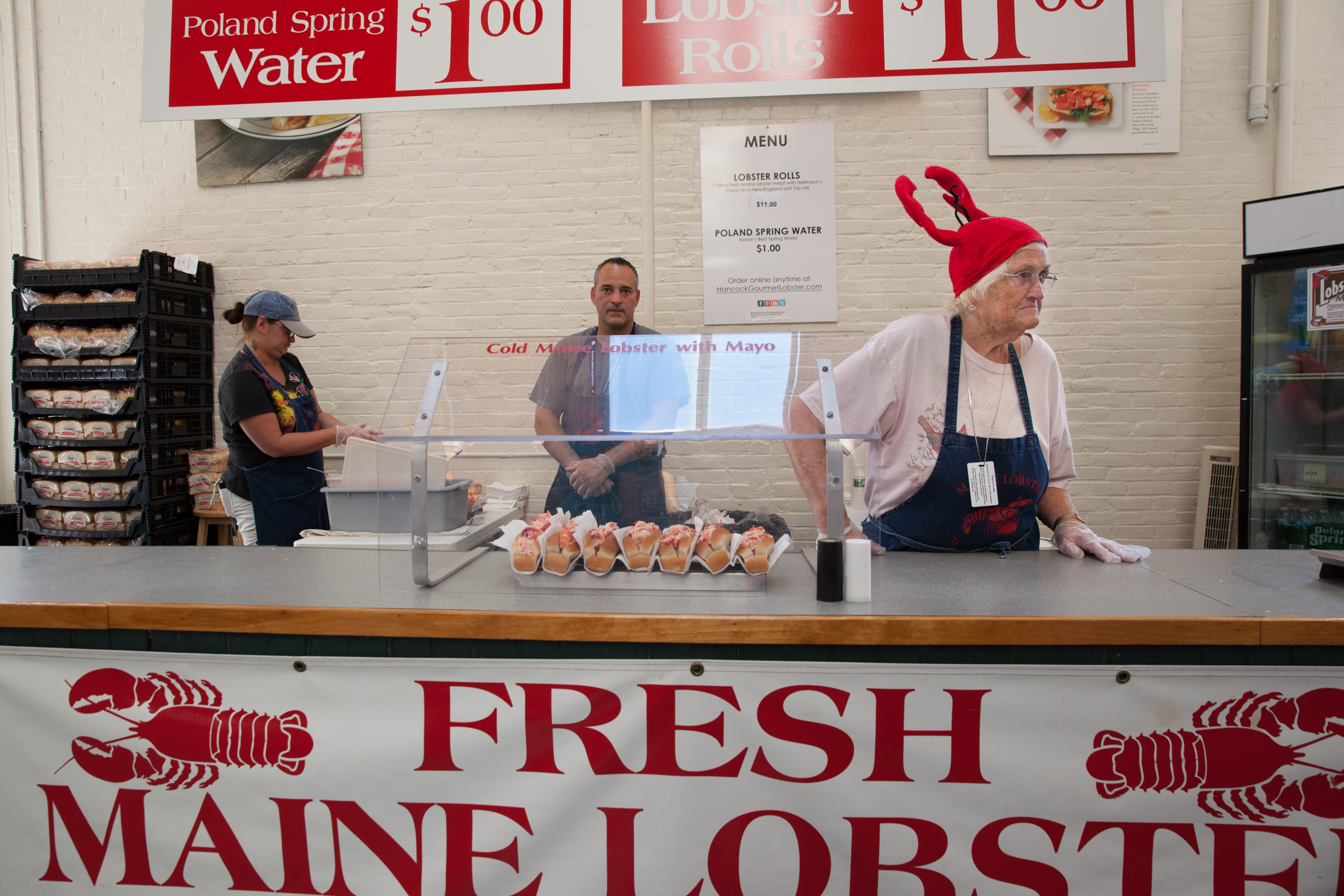
A woman selling lobster rolls in the Maine building. Two-thirds of live lobsters sold outside the U.S. go to Asia.s. (Credit: Ryan King/WNPR)
The next U.S. Census isn’t till 2020. But already, there’s controversy over a plan to ask all U.S. households about their citizenship status. The Mayor of Springfield, Mass. has been trying to shut down a church housing an undocumented woman from Peru. The Trump Administration has imposed tariffs on a number of products coming from abroad, including some 1,300 Chinese goods. China, responded with their own list and tariffs, which could affect two New England markets, craft beer and lobster. And finally, The Handmaid’s Tale is set in a dystopian near-future New England but pulls inspiration from the region’s Puritan past. It’s NEXT.
The 2020 Census
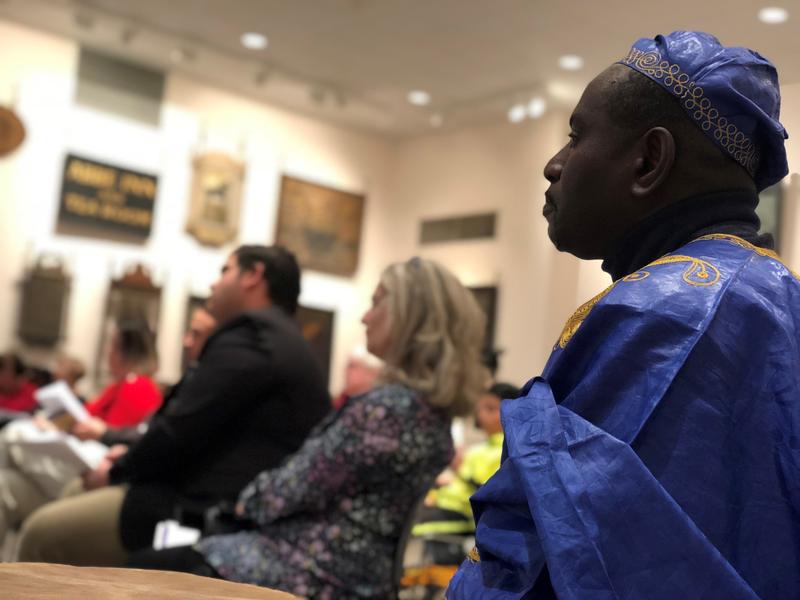
Hartford resident Georges Annan-Kingsley, right, is an artist and political refugee from the Ivory Coast.(VANESSA DE LA TORRE / CONNECTICUT PUBLIC RADIO)
The next U.S. Census isn’t till 2020. But already, there’s controversy over a plan to ask all U.S. households about their citizenship status — a question that critics say puts an uncomfortable spotlight on immigrants who are not citizens. This hour we’re looking at how communities across New England are responding. Connecticut Public Radio’s Vanessa de la Torre has the story of how it’s affecting Census plans in Hartford.
If you live in Providence County, Rhode Island, you might get an envelope in the mail two years early. That’s because the county is the site of the only test-run for the 2020 Census. We talk with Sam Adler-Bell, a senior policy associate at the Century Foundation and writer at The Intercept. He’s been following the 2020 Census “dress rehearsal” in Providence county.
A Sanctuary In Springfield
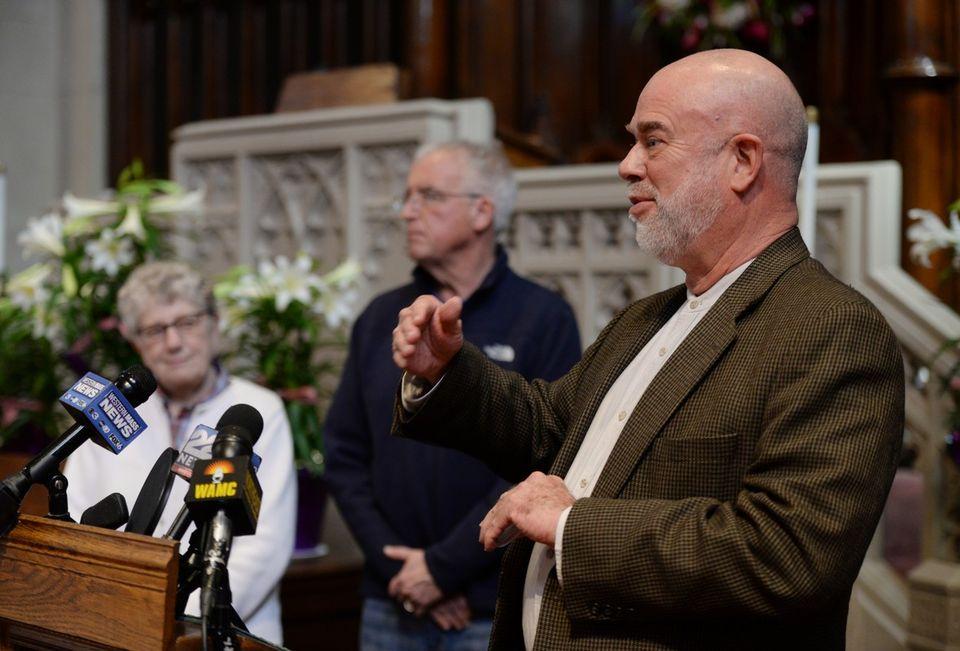
Rev. Tom Gerstenlauer, right, of South Congregational United Church of Christ. (DAVE ROBACK / THE REPUBLICAN / MASSLIVE.COM/PHOTOS)
The Mayor of Springfield, Massachusetts, has been trying to shut down a church housing an undocumented woman from Peru who was about to be deported. Church officials are giving her what they call sanctuary, as houses of worship are less likely to be entered by immigration officials. And while Mayor Domenic Sarno made it clear months ago — the city is not a sanctuary city — the first amendment may be blocking him from getting his way. New England Public Radio’s Jill Kaufman reports.
New England’s Pros and Cons Of Trump’s Trade War
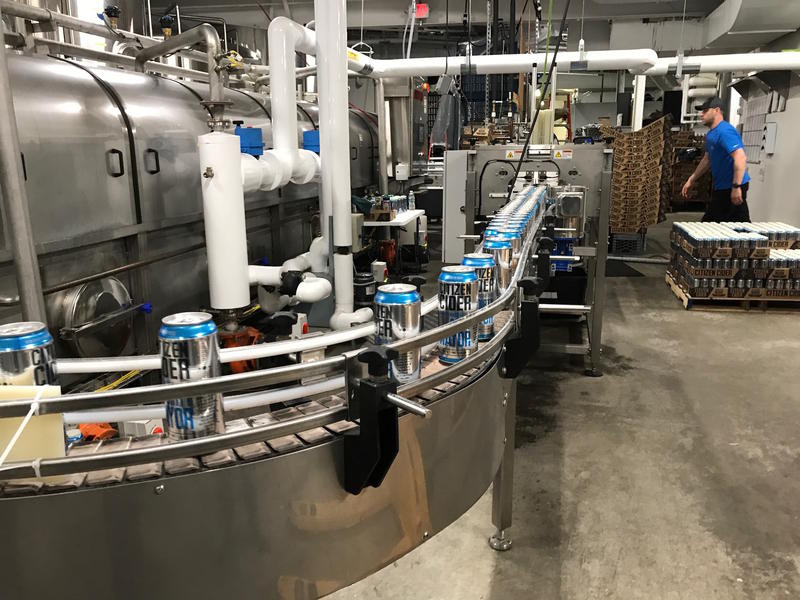
Aluminum cans of Citizen Cider’s “Dirty Mayor” make their way on the canning belt at the company’s Burlington canning facility. (HENRY EPP / VPR)
Starting with steel, The Trump Administration has imposed tariffs on a number of products coming from abroad, including some 1,300 Chinese goods. China responded with their own list and tariffs as high as 25 percent. We’re taking a look at two industries in New England impacted by tariffs:
As part of the craft beer boom, you see more shelves filled with cans than bottles. They’re lighter, cheaper to ship, easier to recycle…and a bit cooler. But if the cost of aluminum cans goes up, that could get passed on to the consumer. VPR’s Henry Epp spoke to Justin Heilenbach, president of Citizen Cider in Burlington, Vermont.
Among the U.S. products to be hit with Chinese tariffs lobsters is not yet on the list. It’s good news for Maine Lobstermen. Two-thirds of live lobsters sold outside the U.S. go to Asia. We talked to Penny Overton, she covers the lobster and marijuana industries for the Portland Press Herald, to talk about the link between Maine and China.
Uncovering History
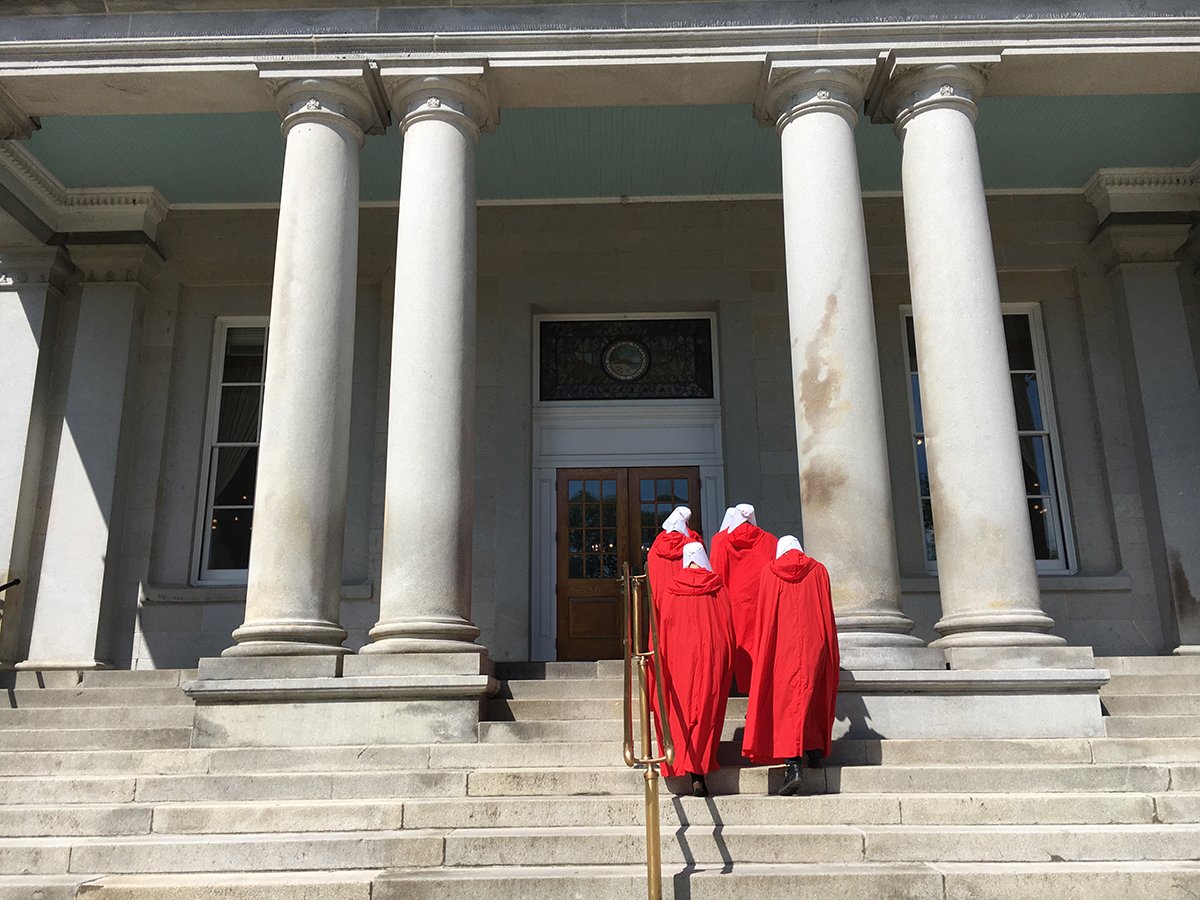
Women dressed like “handmaids” — fertile women forced into sexual slavery in the Hulu drama “The Handmaid’s Tale”. (Photo by Casey McDermott for NHPR)
New England’s Seacoast is home to some of the earliest history of European settlers anywhere in the country. Believe it or not, much of that history is still being uncovered. But now climate change and rising seas are adding new urgency to those efforts. NHPR’s Jason Moon joined a researcher for a hike to a centuries-old archaeological site in New Hampshire that is literally washing away.
The Handmaid’s Tale, the hit Hulu show, based on the novel by Margaret Atwood, returns for Season Two on April 25. The show is set in a dystopian near-future New England but pulls inspiration from the region’s Puritan past. Last year, we sat down with Rebecca Tannenbaum – a Senior Lecturer of History at Yale, and Kathy Cooke – a professor of History at Quinnipiac University to talk about the connections. In Season One, we see the Handmaids acting as spies on one another, and Tannenbaum gave us some insight into the history of a surveillance society in small New England towns.
About NEXT
NEXT is produced at Connecticut Public Radio.
Host: John Dankosky
Produced with help this week from Lily Tyson, Ali Oshinskie
Special thanks to Carlos Mejia
Executive Producer: Catie Talarski
Contributors to this episode: Vanessa De La Torre, Jill Kaufman, Henry Epp, Jason Moon
Music: Todd Merrell, “New England” by Goodnight Blue Moon
We appreciate your feedback! Send critiques, suggestions, questions, and ideas to next@wnpr.org. Follow us on Facebook and Twitter.
Next time on NEXT… we’ll discuss why so many young people are leaving New England. We’d like to hear from you. Are you planning on leaving the region? Or maybe you just got settled? Tell us your story. Send a voice recording to NEXT@WNPR.org.
